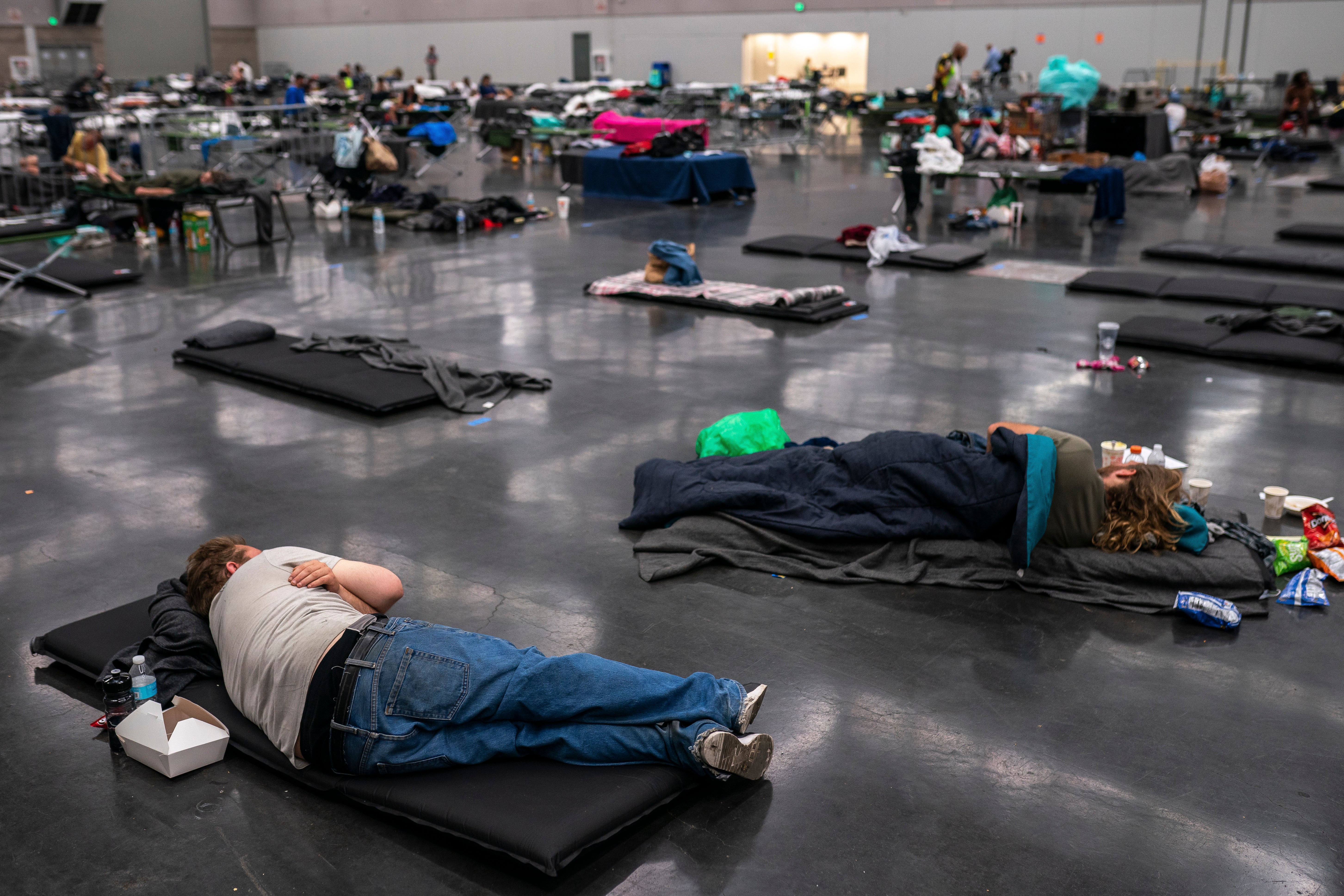As a native Texan, I have some thoughts about the Pacific Northwest heat wave
When Texas suffered under winter conditions normal for Seattle or Canada, too many northerners said, ‘I cope with it every year, so what’s the big deal?’ Now it’s the other way round

Your support helps us to tell the story
From reproductive rights to climate change to Big Tech, The Independent is on the ground when the story is developing. Whether it's investigating the financials of Elon Musk's pro-Trump PAC or producing our latest documentary, 'The A Word', which shines a light on the American women fighting for reproductive rights, we know how important it is to parse out the facts from the messaging.
At such a critical moment in US history, we need reporters on the ground. Your donation allows us to keep sending journalists to speak to both sides of the story.
The Independent is trusted by Americans across the entire political spectrum. And unlike many other quality news outlets, we choose not to lock Americans out of our reporting and analysis with paywalls. We believe quality journalism should be available to everyone, paid for by those who can afford it.
Your support makes all the difference.As I lay on my couch this week, pressing an icepack against my head and cursing my window unit air conditioner for barely making a difference in the oppressive heat that took over New York, I took small comfort in the fact that at least I’d have something to talk about next time I visited my family back home in Houston, Texas.
An under-appreciated skill when making return trips after moving from Texas to New York is finding topics of conversation when both parties lead such different lives, and I’ve got a big, extended family: aunts, uncles, cousins, siblings, parents, stepparents, everyone’s respective spouses and children, in addition to my grandmother. With such a variety of people and personalities, and sometimes years between our last catch-ups, it’s tough to know what subject is interesting to talk about, yet isn’t an obligatory laundry list of the past two years of each of our lives.
Blessedly, the weather fills this void quite nicely. Whenever a conversation feels like it’s stalling, I drop in some anecdote about one of New York’s miserably cold winters to get the conversation juices flowing again. But it’s the topic of New York summers that always throw their concept of Yankee Climate for a loop.
In Texas, the summers (and parts of spring and fall) are oppressively hot and the winters are a cool respite, so it would make sense that the opposite would be true in New York: cold, miserable winters with temperate summers as our reward. Inevitably, I say to someone’s surprise that New York summers can be quite bleak as well. The average high temperature in Houston in July is 91F (33C), while in New York it’s not too far away at 84F (29C). And the humidity in both places are pretty similar, so a heatwave in New York hits as bad as one in Houston. Only in New York, few people have central AC, and many don’t have air conditioning at all. And we’re much less reliant on cars for transportation, so while Texans have to endure the hellish climate between their front door and their car door, New Yorkers walk all over the concrete metropolis in it.
Someone usually politely listens to my woebegone tale of New York in the summer before pausing and emphasizing that it’s still not as bad as summer in Texas. And this isn’t just a southerner’s uncharitable view of the northern climate. When Texas went through its deep freeze in February, Houston hit a low temperature of 11F (-12C). Yet, like clockwork, I heard people from Canada or the Midwest say how that was nothing compared to a really cold winter they experienced.
There’s always a hint of unearned local pride in those conversations. An “I toughed out this extreme temperature regularly, so don’t expect much sympathy from me” train of thought. But that line of thinking is short-sighted, in addition to being pretty egotistical. It’s pretty easy to tough out the extreme weather your local area is prepared for, and has the infrastructure to cope with.
Extreme weather events are occurring more frequently because of climate change, and these are the most destructive when they occur in geographies not accustomed to them. The heat wave in the Pacific Northwest and Canada this week has been devastating for the region, and the polar vortex is becoming more unstable because of the changing climate, occasionally bringing freezing arctic air down to places like Texas.
Parochial pride in one’s local weather might’ve made sense when the climate was more stable and varied between regions. But the worse the climate crisis gets, the more erratic extreme weather becomes in places where there’s not the infrastructure to deal with it. Just as a lot of Seattleites didn’t have an air conditioner handy this week, a lot of Houstonians didn’t have a fireplace or space heater in February. And even if they had, the energy system that would supply those space heaters proved it couldn’t cope with the extra pressure generated by an unseasonable winter storm — just as energy providers in New York had to send out alerts this week asking those in the state to limit their use of appliances like washing machines and microwaves so there wasn’t a sudden blackout during the heat wave.
Investment in durable infrastructure is necessary in the short term, as Texas’s catastrophic power grid failure demonstrated. But until we as humans make long term investments to curb carbon emissions and their impact on climate change, I’ll have to make do with an ice pack and box air conditioner in New York, and will send my family matching in Texas thermal underwear just in case.
Join our commenting forum
Join thought-provoking conversations, follow other Independent readers and see their replies
Comments